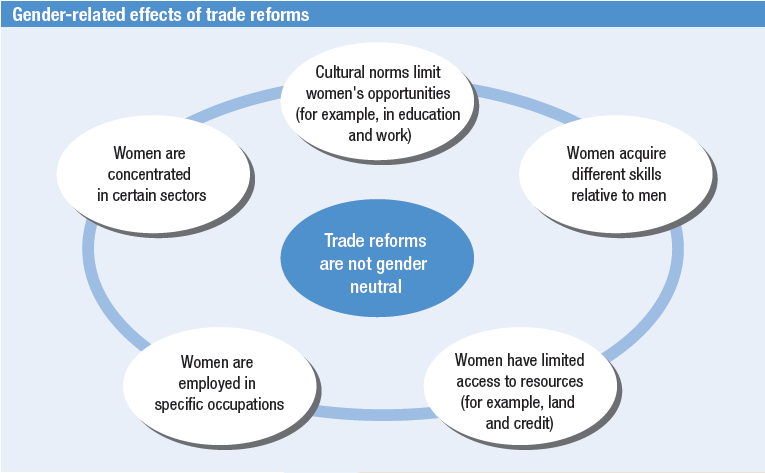Worth SEK 1 350 000 [$ 150 000], the new programme will help governments to assess whether a specific trade reform will impact women positively or negatively, for example by expanding or contracting sectors where women work. Policy makers will then be better positioned to implement complementary policies that minimize any negative shocks, or even to re-design or delay the new policy.

Implementing gender-aware ex ante evaluations to maximize the benefits of trade reforms for women - UNCTAD Policy Brief No. 51
Policy makers have often been able to predict the outcomes of any given trade policy on individual industries or on the national economy as a whole, but they have been less well equipped to judge who the winners and losers will be, UNCTAD's Deputy Secretary-General, Joakim Reiter, said.
"For the first time ever, developing countries will be able to assess the impact of any trade deals on their women before the deal enters into force. The same methodology UNCTAD is developing could apply to assess trade impacts on other segments of the population," Mr. Reiter said.
"On behalf of UNCTAD, and all the countries, people, and trade programmes that will benefit from this new tool, I'd like to express my gratitude to the government of Sweden," he added.
As the importance of gender equality is better understood not just for social cohesion, but also for economic growth, more and more countries are seeking to boost gender equality, including by empowering women to earn. Sustainable Development Goal 5 is gender equality and empowerment of women and girls.
In 2004, the African, Caribbean, and Pacific (ACP) group of countries asked the European Commission to support studies on the impact of trade arrangements on women in their countries.
"We have seen a large amount of demand for such a programme, and we're delighted to be able to support this in collaboration with UNCTAD," Oscar Stenström, Sweden’s State Secretary to the Minister for EU Affairs and Trade, said.
UNCTAD supports developing countries with both policy analysis and technical assistance, so that trade supports inclusive development, including by benefitting women, in line with the 2030 Agenda for Sustainable Development.


